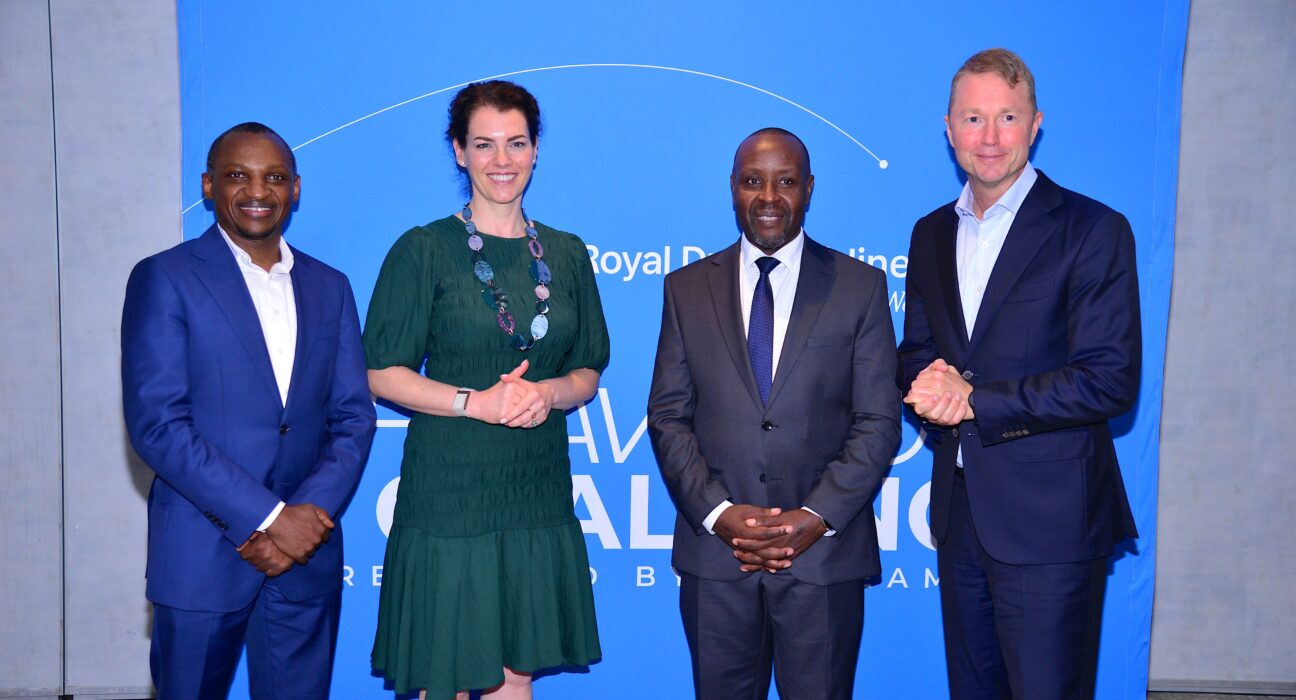In a major step toward decarbonizing air travel across Africa, KLM Royal Dutch Airlines and Kenya Airways (KQ) have jointly convened a high-level executive roundtable in Nairobi, leading to a historic policy breakthrough on the adoption of Sustainable Aviation Fuel (SAF) on the continent.
The meeting, which brought together 20 top aviation stakeholders from organizations including the International Civil Aviation Organization (ICAO), Kenya Civil Aviation Authority (KCAA), Kenya Airports Authority (KAA), the African Airlines Association (AFRAA), and the International Air Transport Association (IATA), resulted in the first continent-wide consensus on regulatory recommendations for SAF development and use.
Policy Milestone for Green Aviation in Africa
The roundtable marked a turning point for Africa’s aviation industry, which is projected by IATA to double passenger traffic by 2035. With air transport already responsible for about 2–3% of global CO₂ emissions, the continent’s growth trajectory underscores the urgency of sustainable solutions.
Participants agreed on a comprehensive policy package calling for:
- SAF blending mandates to encourage consistent use across carriers,
- Producer incentives, including tax reliefs and subsidies,
- Streamlined certification and licensing for SAF production and importation, and
- Investment in storage and blending infrastructure at key airports.
The proposals aim to harmonize regulatory frameworks across African jurisdictions to enable SAF production at scale, supported by collaboration between governments, regulators, and private investors.
Unlocking Africa’s SAF Potential
Alternative aviation fuel — made from renewable feedstocks such as waste oils, agricultural residues, and sustainable biomass — can reduce lifecycle emissions by up to 65% compared to traditional jet fuel.
Industry experts at the meeting highlighted East and Southern Africa’s vast biomass resources as an untapped opportunity for sustainable feedstock cultivation. However, they warned that lack of harmonized regulation and limited production capacity remain key barriers.
“Africa holds enormous potential to lead in a more sustainable aviation, and collaboration is the key,” said Zita Schellekens, Air France–KLM Senior Vice President of Sustainability, Strategy and Transformation.
“Together, we can align policy, infrastructure, and innovation to unlock scalable SAF solutions tailored to the region’s unique strengths. Today’s roundtable was a meaningful step toward realizing that vision.”
Kenya Airways: A Regional SAF Trailblazer
Kenya Airways Group MD & CEO Allan Kilavuka reaffirmed the national carrier’s commitment to a sustainable growth model aligned with Kenya’s broader green transition agenda.
“As Africa’s aviation landscape transforms, we must ensure that growth is both inclusive and sustainable,” Kilavuka said.
“Kenya Airways is committed to working with our partners, regulators, and communities to lay the groundwork for a SAF ecosystem that benefits not only our industry but our continent as a whole.”
The airline has been developing a corporate SAF uplift model, complementing KLM’s mass-balance system — an approach that allows for blended SAF use while scaling production capabilities.
A Roadmap for Regional Action
A key outcome of the roundtable was the agreement to develop a Joint SAF Action Roadmap — a living document to guide ongoing collaboration, set uptake targets for the next decade, and establish pilot projects in Kenya and the Netherlands.
The roadmap will evolve with technological innovation and market trends, ensuring Africa’s aviation industry keeps pace with global sustainability benchmarks.
Additionally, the meeting called for capacity-building programs and academic-industry partnerships to nurture local expertise in sustainable fuel engineering and aviation technology.
Part of SkyTeam’s Aviation Challenge
The engagement was held under The Aviation Challenge (TAC) — SkyTeam’s annual sustainability initiative designed to showcase collaborative, tangible actions in reducing aviation’s carbon footprint.
Now in its fourth edition, TAC previously involved 33 global showcase flights operated by 24 airlines, including non-SkyTeam members. Nairobi was selected as one of this year’s strategic hubs, with KLM operating SAF-powered flights into the city during October 2025.
The Nairobi roundtable demonstrated how global innovation and African collaboration can merge to chart a regionally adapted, sustainable aviation pathway.
Industry Significance
The Nairobi roundtable signals a watershed moment for Africa’s aviation sector, positioning Kenya as a policy leader in sustainable air transport. The consensus reached is expected to inform continental frameworks through the African Union and AFRAA, with Kenya Airways and KLM acting as technical partners in pilot implementation.
With the global aviation industry under mounting pressure to achieve net-zero emissions by 2050, this development represents one of the continent’s most concrete steps toward aligning with international decarbonization goals.





